Subjects
Elective subjects

Asian Cinema: Context
The course presents an overview of the historical development of cinema in East Asia and examines its relationship with cultural, social, and political aspects of great relevance both for that part of the planet and globally. Through the different sessions, which are complemented by the viewing of a film and the reading of reference texts, the course covers from the beginnings of the seventh art to contemporary commercial successes, through revolutionary-inspired cinema or the most experimental. The linguistic, national, and cultural diversity of the region is also addressed, with sessions dedicated to Tibetan, Taiwanese, or North Korean cinema. In summary, the course offers resources from visual and cinematographic studies to understand the reality of cinema in Asia as well as to relate this production to its production and reception contexts.
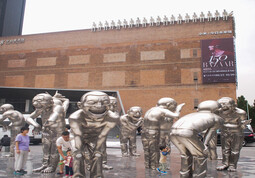
Branding Asian Art
The Asia-Pacific region is a new important core of world’s artistic production and promotion that is going to be an alternative to the euroamerican hegemony. In this subject we will focus on the cultural institutions dedicated to the development, presentation, promotion and exchange of artworks: museums, fairs, biennials, galleries, auction houses, etc. We will concentrate on their historic evolution and on how they influenced the development of artistic production in the countries of the Asia-Pacific region.
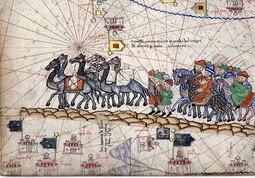
The Silk Roads
The course aims to provide students with a historical, political and economic approach to the Silk Road. We will follow the construction of the Chinese imperial model and its consequences for trade with Central Asia, the effect of the Muslim religious schism on the Silk Road, as well as European intervention and its political-economic consequences for the continent.
At the end of the course, the student will not only have acquired knowledge about the forms of commerce that existed on the Silk Road and the dynasties that coexisted with this Road; They will also be able to understand the dynamics between the world of commerce and politics in all their effects.
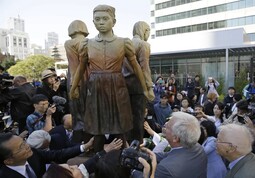
La Cultura Visual de l'Alteritat
What kind of attacks on art and cultural heritage have taken place in the Asian-Pacific Region? How were these attacks motivated? And is an attack always intentional?
From graffiti to illegal monuments, from colonial disruption to grassroots motivated attacks, these aspects and many more will be studied through historical and contemporary cases; through primary sources and theoretical texts. Each week, we will examine a case study from a different country in the Asia-Pacific region, and thus will look at an exhibition being shut down in Indonesia or a World Heritage site being slowly atrophied by tourism in Cambodia. Attacks and threats will be examined through their ambivalence and self-contradiction: some attacks might protect art or cultural heritage in the end, whereas appreciation can be destructive. Students will be encouraged to be interactive, to share from their own research and academic knowledge and to also employ creative tools in their assignments.
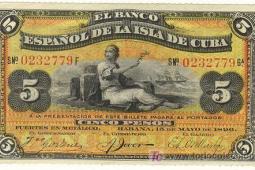
The Formation and Desintegration of Empiries in the Modern and contemporary world
Comparative history of the European colonial empires and the American and Japanese empires (15th - 21st centuries). Each course analyzes a specific political and social formation, its inter- and intra-imperial dynamics, with a special emphasis on transition processes. The purpose of this course is to analyze the decline of the Spanish empire.
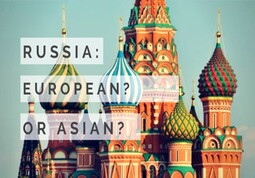
Asian Russia
The course aims to explore Asian Russia as a space of encounter for different cultural, economic and political entities. Thanks to an approach that combines various academic perspectives, students will have the opportunity to learn about numerous aspects of life in Siberia and better appreciate the importance of geographical and climatic factors in the development of area-specific civilizational forms with their characteristic ways of cultural expression and socioeconomic organization. The first part of the course will focus on historical analysis, taking into account the political and anthropological aspects of Siberia’s development. In the second part of the course, the focus will be placed on exploring the current dynamics in northern Eurasia and the surrounding areas, formerly belonging to the Russian Empire and the Soviet Union, with particular attention to economic and cultural aspects.
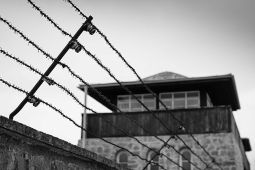
Ethinical persecutions and Genocide
The subject is an approach to comparative studies on ethnic persecutions and genocides in the contemporary world. The first part of the subject will focus on the theoretical and conceptual reflection around the main global phenomena that the research considers have acted historically - and continue to act - as mobiles of ethnic persecutions and genocidal acts: the State (-nation ) and nationalism, racism, religion or ethnicity. Analyzes and controversies will also be presented around the types and nature of mass crimes and the concept of the crime of genocide: acts and constituent elements, role of the State, types of perpetrators, motivations, contexts, local and international conditions , character of the victims. In the second part of the subject, the knowledge acquired will be applied to the analysis of some of the most studied and discussed cases by specialists of ethnic persecutions and genocides that occurred in several continents throughout the 20th century with the aim of acquiring a comparative perspective. The main controversies and debates surrounding these studied cases will be presented, including the Holocaust, the most documented and analyzed case of genocide. What is intended with the study of these terrible events is not to present a catalog of horror, but to analyze how and why they occurred, weighing the mechanisms, also institutional, that can contribute to ensuring that they are not repeat in the future.
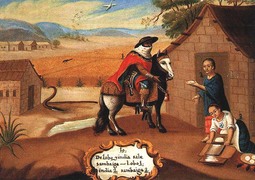
Itinerancy and Hybridization, goods and objects: Archeologies of Colonialism
The Europe we know today emerges on the basis of a sophisticated set of cooperation and integration mechanisms that are successive responses of a collective nature to what is perhaps the main contemporary economic and political challenge of the Western world: how to govern a progressive globalization while constructing and defending representative political systems. The course is divided into three parts. The first analyzes the impact of the Second World War and the post-war reconstruction period (1944-51) both from a European (Eastern and Western) and international perspective; the second focuses on understanding the nature and causes of the European golden age (1951-68), taking into account the economic, political and social spheres; and the third and last to the problem of the definition of the current 'European model' - centered on the European Union - which is, in essence, the failed response to the exhaustion of the exceptionalism of the golden period (1969- 2014).
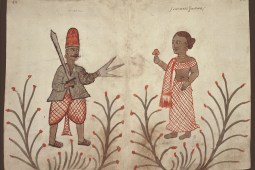
Asian-Pacífic Region and Latinoamerica
The aim of the course is to analyze the history of cultural encounters generated by European colonial expansion at the beginning of the Modern Age (16th - 18th centuries), emphasizing the production of ethnographic, literary and visual knowledge. The course adopts a comparative global perspective, taking into account the context of the different encounters in Africa, Asia, America and the Pacific. The course will emphasize the overseas empires of Spain and Portugal, but will also include documentation generated by the colonial experiences of the Dutch, French, and British. Each seminar will explore a different topic and involve contextual analysis of a variety of ethnographic sources. The aim is to achieve an understanding of the historical, geographical, literary and artistic genres that gave rise to the ethnographies, taking into account the European intellectual trajectories but also the local interactions (social, political, religious and cultural) that conditioned each encounter
Four key issues will be the guiding thread of the sessions: the problem of cultural perception and its (erroneous) translation; ideals, practices and contradictions of religious missions; the complex nature of colonial and imperial power; and the paradoxical development of universalist and cosmopolitan ideas.
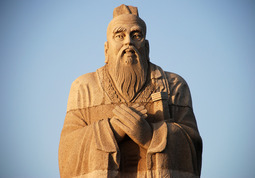
Classics of Asian Thoughts
This course will examine the origins of the main philosophies and schools of thought in Asia—particularly in the East Asian context. The
course will offer a general overview of classical thinkers and works and will contextualize them in their social and historical context.
The course will relate these thinkers, works and ideas with debates in modern and contemporary intellectual history that may be relevant to
specialists in Asia-Pacific studies in a global context. Finally, the course will also reflect on the challenges to disseminate these ideas
to non-specialized audiences and non-Eastern modes of thought.
The course has been designed for students in an Area Studies program who have no intensive background in the fields of philosophy or
intellectual history. Knowledge of Asian languages is not required (all the assigned texts will be in translation), although occasional
specific references to relevant issues of language may be made for students who are familiar with these languages. In any case, these
references will not be part of the evaluation. The course will be taught in English.
The course will incorporate a gender perspective that will be particulary important in the discussion about the topics to be read
across the different units. We will pay particular attention to the applicability of these ideas in terms of gender equality both in their
historical context of origin and in our contemporary societies.
